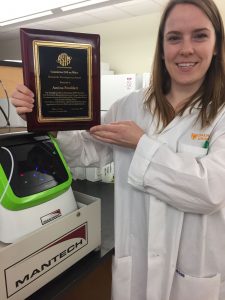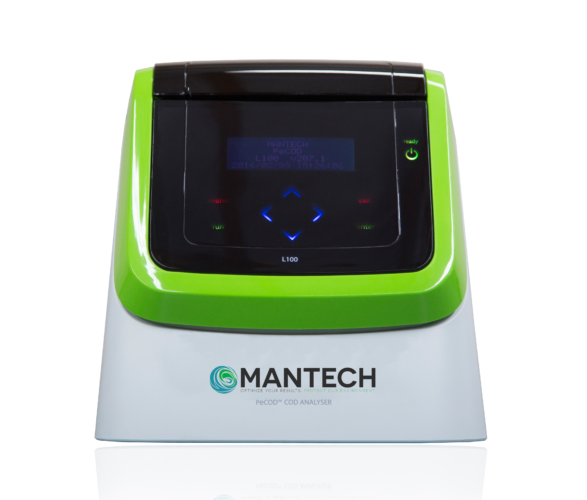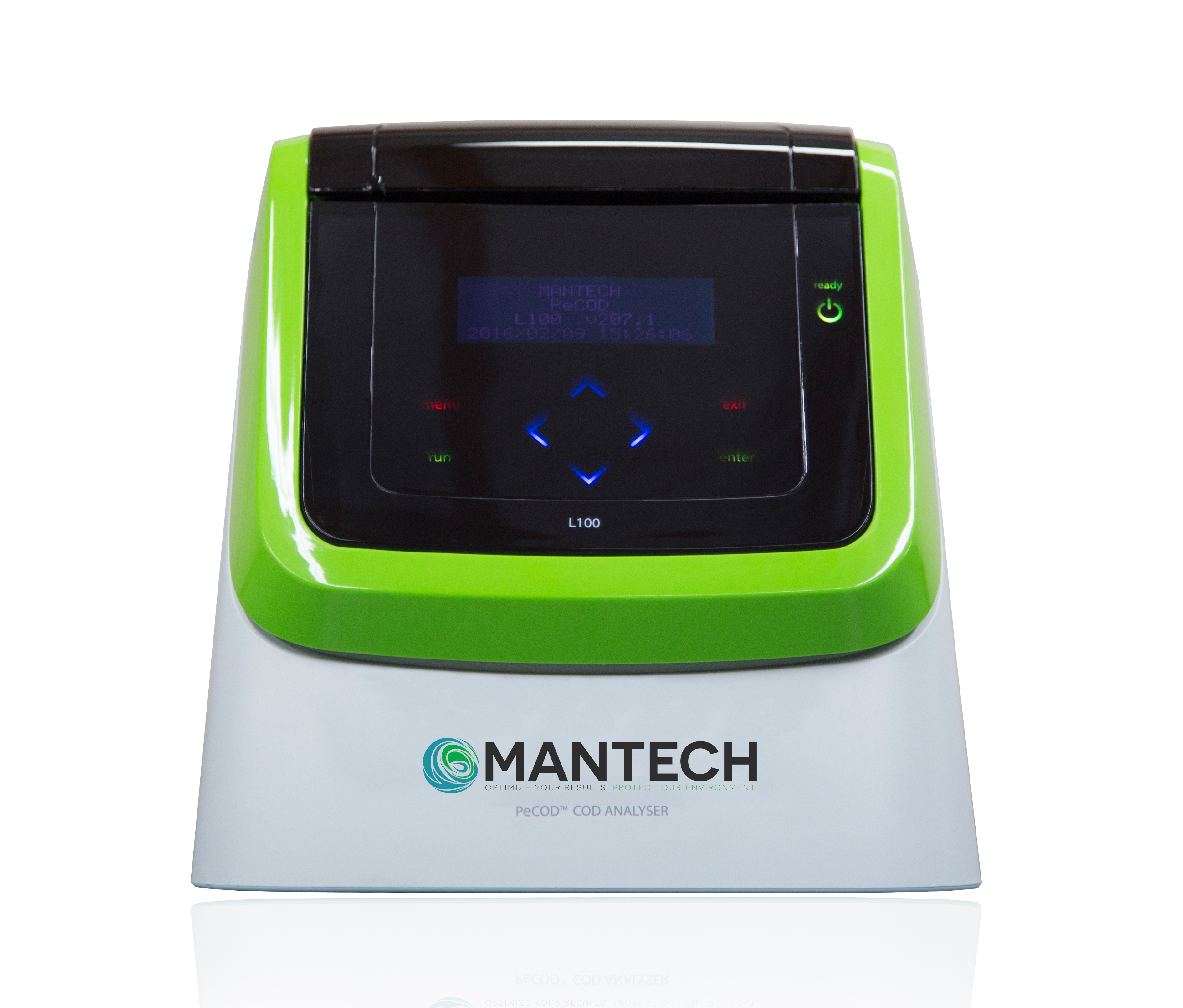Amina Stoddart, EIT, Ph.D. of the Centre for Water Resources Studies at Dalhousie University has won the ASTM International Standards Development Award for her work in demonstrating the importance of the photoelectrochemical oxygen demand (peCOD) parameter.
Throughout Stoddart’s Ph.D. research, she had the opportunity to experiment with and test the scientific value of a new natural organic monitoring (NOM) technology, the peCOD Analyzer, a measurement device produced by Guelph, Ontario’s MANTECH. Stoddart, along with her supervisor, Dr. Graham Gagnon at the Centre for Water Resources Studies, published Application of photoelectrochemical oxygen demand for drinking water in Journal AWWA.
“When compared with other surrogate parameters, peCOD had an expanded scale of resolution, highlighting its ability to provide information on treatment performance even when NOM removal is small (e.g., in the micrograms-of-carbon-per-litre range across a biofilter),” wrote Stoddart and Gagnon in their research.

The peCOD method utilizes a UV-activated nanoparticle TiO2 (titanium dioxide) photocatalyst coupled to an external circuit. The method measures the reactivity of the organic carbon commonly found in natural waters and treated drinking waters. peCOD’s reactivity, or oxidisability, is a different parameter than total organic carbon (TOC) and dissolved organic carbon (DOC0,) since it can be lower or higher than TOC/DOC depending on whether the organic is a donor or acceptor of electrons. Stoddart’s work with the peCOD analyzer is significant, as it provides a new characterization tool for water scientists and engineers to monitor events in source waters, predict disinfection by-products (DBPs), optimize coagulant, and monitor reuse waters for public safety.
Since peCOD is a new parameter with burgeoning interest and impact, Stoddart led the endeavour to develop and release a new reference ASTM International Standard Method. The standard would provide an International Reference Method for scientists and engineers in the water industry working around the globe.

A rigorous two-year experimental and review process with ASTM Subcommittee D19.06 resulted in the approval and release of method D8084 in November 2017. The committee was encouraged by a young engineer in her Ph.D. studies having success, which supported her research to demonstrate the importance of the peCOD parameter for source and treated water monitoring. As a result, the ASTM International Committee D19 on Water awarded Dr. Stoddart with the Standards Development Award for exemplary work on developing the method. Congratulations to Dr. Stoddart on introducing a NEW International Standard in her chosen field of water treatment! For more information on method D8084 click here.









